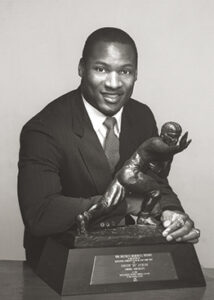
The departure of Bo Bichette from the Toronto Blue Jays after months of speculation has finally been confirmed. The star shortstop, who has been a fan favorite and one of the most consistent players on the team, signed a monumental seven-year contract with a new team for a staggering $180.9 million. The announcement came only hours after Austin Barnes, the backup catcher, left the Blue Jays, which left fans and analysts alike wondering about the future direction of the team.
This move marks the end of an era for the Blue Jays, as Bichette has been a cornerstone of the team’s infield since making his debut in 2019. Throughout his short but impactful career with the team, Bichette has demonstrated an incredible combination of power, speed, and defensive ability, making him one of the top shortstops in Major League Baseball.
In this article, we’ll dive into the details surrounding this deal, examining what led to Bichette’s departure, the significance of his contract, the potential impact on both the Blue Jays and his new team, and what this could mean for the future of Toronto’s roster and competitive aspirations. Additionally, we’ll look at the impact of Austin Barnes’ departure, and how his exit ties into the larger narrative of this off-season.
Bo Bichette’s departure from Toronto was not entirely unexpected, as rumors about his future had been swirling for several months. As one of the key players in the Blue Jays’ lineup, Bichette had consistently been one of the team’s most reliable performers. His combination of bat speed, batting average, and fielding abilities made him an attractive player for any team, and his contract situation with the Blue Jays had been the subject of much discussion. Despite his success, there had been a sense that his long-term future in Toronto might not be as secure as many had hoped.
Bichette had been in the final years of his rookie contract, and while he was still under team control for a few more seasons, it became clear that the Blue Jays would have to make a significant decision about his long-term future. Speculation intensified last season when Bichette had an outstanding year, putting up impressive numbers in almost every statistical category. His power numbers soared, his batting average remained consistently high, and his defensive skills improved.
However, despite his performance, it became increasingly difficult for the Blue Jays to negotiate a long-term deal with Bichette. The financial demands were significant, and the team was already dealing with the financial strain of other high-profile contracts, including those of Vladimir Guerrero Jr., George Springer, and Hyun Jin Ryu. The team’s management also had to consider future payroll flexibility, especially as the league’s landscape was changing, with rising salaries and the introduction of new collective bargaining agreements.
Negotiations had dragged on for months, with both sides seemingly far apart on terms. Sources close to Bichette indicated that he was seeking a long-term commitment and was willing to listen to offers from other teams if the Blue Jays could not come to the table with a competitive offer. Ultimately, a decision was made to move on from the star shortstop, and Bo Bichette was granted permission to test free agency.
The breaking news of Bo Bichette signing a seven-year contract for $180.9 million sent shockwaves throughout the baseball world. The deal was structured to ensure that Bichette would remain with his new team for the foreseeable future, locking up one of the game’s most exciting young talents for an extended period. The $180.9 million figure represents one of the largest contracts ever given to a shortstop, highlighting just how highly valued Bichette is in the current market.
For the team that signed him, this deal is a statement of intent. They are clearly committed to building a winning franchise around Bichette, who will be the centerpiece of their infield for years to come. The length of the contract allows the team to build around him, and it ensures that they will have one of the best shortstops in the league for the entirety of his prime.
While the financials of the deal are impressive, the real story lies in the potential impact that Bichette will have on his new team. He is already one of the most dynamic players in the game, and his presence in the lineup will give the team an immediate boost. Bichette’s ability to hit for both power and average, combined with his elite speed and solid defensive play, makes him a complete player who can contribute to the team in virtually every aspect of the game.
The financial commitment to Bichette is a gamble, but it is one that the team is willing to make in hopes of reaping the rewards in the years to come. This long-term investment is a clear indication that they are in “win-now” mode and believe that Bichette will be a crucial part of their success over the next decade.
The departure of Bo Bichette represents a significant loss for the Toronto Blue Jays. Bichette had been one of the franchise’s most exciting young stars, and his absence leaves a sizable hole in the team’s infield. He had established himself as the face of the team for many fans, and his exit is sure to leave a lasting impact on both the roster and the fanbase.
From a baseball perspective, the Blue Jays will have to find a way to replace Bichette’s production. His bat will be hard to replicate, as he had become one of the league’s top offensive shortstops. While the team has a number of talented players on the roster, none of them have the same combination of skills that Bichette brings to the table.
Defensively, Bichette’s departure also leaves a gap. While not considered elite defensively, he was a steady presence at shortstop, and his ability to make plays in the field was an important part of the Blue Jays’ overall success. Finding a player who can replace his defensive abilities, particularly at shortstop, will be a difficult task.
From a leadership standpoint, Bichette’s exit also removes one of the team’s most charismatic and influential players. Bichette had quickly become a leader in the clubhouse, and his passion for the game was infectious. His absence will be felt not only on the field but also in the locker room, where his energy and enthusiasm had helped to motivate his teammates.
In terms of long-term planning, the Blue Jays will now need to focus on rebuilding their infield and finding a player who can fill the void left by Bichette’s departure. This could lead the team to explore options via free agency or trade. While they have some young talent in their system, it is unclear whether they have a ready-made replacement for Bichette on the horizon.
The timing of Bo Bichette’s departure is particularly interesting when viewed alongside the recent departure of Austin Barnes. Barnes, who had been a reliable backup catcher for the Blue Jays, left the team under similarly mysterious circumstances, sparking speculation about the future direction of the franchise.
While Barnes was not a star player, his presence on the roster was valuable, particularly in his role as a mentor to the younger catchers on the team and his ability to manage the pitching staff. With Barnes gone, the Blue Jays now face a situation where they need to find a reliable backup catcher who can not only perform behind the plate but also provide leadership and support to the younger players on the roster.
It is possible that the Blue Jays view Barnes’ departure as part of a broader plan to reshuffle the roster and create financial flexibility for future acquisitions. With the loss of Bichette and the departure of Barnes, the team may be positioning itself to make more aggressive moves in the upcoming trade deadlines or free agency periods.
The departure of Bo Bichette marks a new chapter for the Toronto Blue Jays. While it’s undoubtedly a difficult loss, the team will now be forced to adapt and evolve. They will need to find ways to replace Bichette’s production, both offensively and defensively, and ensure that their infield remains competitive. The future of the Blue Jays’ roster will likely revolve around how well they navigate this transition and what moves they make in the coming months.
For now, the Blue Jays will need to focus on rebuilding their roster, but they still have a strong core of players in place, including Vladimir Guerrero Jr., George Springer, and Alek Manoah. While losing Bichette is a significant blow, the team remains competitive, and they still have the resources and potential to contend for a playoff spot in the coming years.
The departure of Bo Bichette marks the end of an era for the Toronto Blue Jays. His signing of a seven-year, $180.9 million deal with another team represents one of the most significant moves of the off-season and has reshaped the future of both the Blue Jays and the team that acquired him. While his loss will be felt by Toronto fans, the Blue Jays are now faced with the challenge of replacing his production and finding new ways to build a championship-contending team.
With the exit of Austin Barnes as well, it’s clear that the Blue Jays are entering a period of change. How they respond to this shift will determine whether they can continue to compete at a high level or if they will need to enter a rebuilding phase.
For Bo Bichette, this new chapter represents an opportunity to solidify his legacy as one of the game’s great shortstops. With his talent and determination, he has the potential to become a cornerstone player for his new team, and the next seven years will be crucial in shaping his career. As for the Blue Jays, the coming years will undoubtedly be filled with questions, but with a talented roster and a dedicated front office, the team remains one to watch as they attempt to rebuild and reload for future success.





